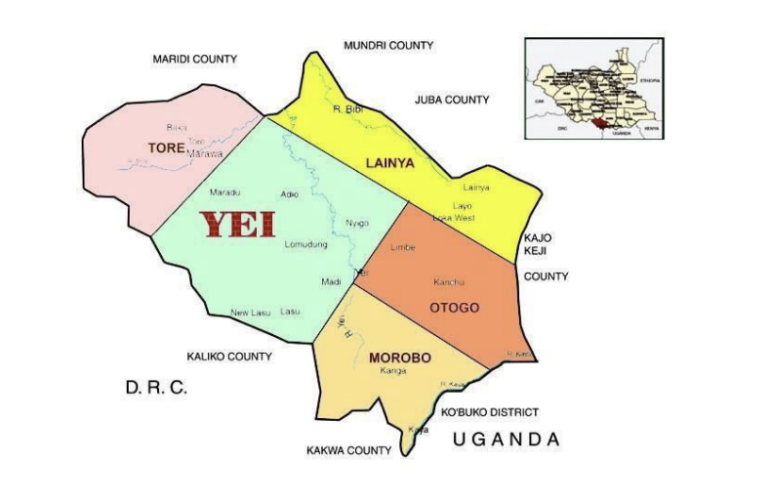Increasing Access to Life Saving Services for Children Through Child-Safe Space

Photo: Map of Yei, Central Equatoria State
It was during one of these CSS activities in Marakonye that NP recognized the problems of access to treatment and stigmatization that epileptic children and their families are facing. After realizing this, NP informed them about the free epilepsy medicine that MSF was giving out to epileptic patients through humanitarian partners in Yei, Pibor and Maban. However, affected families often live-in remote areas, and with only one hospital in the Yei county, most health concerns in the remote villages are left unattended. The situation is particularly dire for Marakonye villagers who live with epilepsy, as the hospital is not only far (three miles away), it also lacks the capacity to provide treatment for sicknesses like epilepsy. In such an environment, Marakonye is rife with myths and misconceptions about the causes and treatment of epilepsy. Inda, one of the caretakers of epileptic children said;
“I suffered for 17 years in trying hard to see that my son is epilepsy free, we got local herbs from the roots of different plants, we took him to different traditional herbalists but all didn’t work out, I really thank NP for sharing this medical information and helped us to link with MSF."
Incidentally, the use of herbal remedies rather than suitable medical treatment stemmed from the communities’ belief that epilepsy is caused by paranormal phenomena such as witchcraft and curses that there is no cure for it and the best one can do is to minimize seizure through herbal remedies. Influenced by such beliefs, those who contracted epilepsy are often stigmatized and marginalized by the community. This was the case for 15 years old Samuel, who said,
“Most times I kept myself in isolation because when I get seizures, people fear me. I felt I was a burden to the children in the community and the family due to my frequent seizures.’’
Those who are marginalized often miss out on the chance to play and socialize with other children; they also miss schools and other services, and in the end, suffer from immense psychological stress.
The six epileptic children who attended the CSS sessions were also referred by NP to MSF Belgium, where each of them could receive the free medications for the disease. For many, this was the first time they had received such information. This included Jane, mother to an epileptic child who said:
“We live in remote areas and we also lack radios to access this type of information so we miss a lot of information but through NP we received the information about the free medication for epilepsy.”
Going forward, NP will continue referring epileptic children from Marakonye: ensuring their access to medication and also following up with their caretakers. NP will also coordinate with the MSF on the provision of future medical services and to review progress on a monthly basis so the children will truly have the treatment and dignity that they long for.
